Educational Regulatory Framework for Quality Assurance
Toi Ohomai Regulatory Framework
Toi Ohomai Regulatory Framework covers academic regulations that affect learners, like enrolment, assessment, recognising prior knowledge and skills, awards and graduation.
Where there is a conflict between academic regulations and programme specific regulations, the programme specific regulations will prevail.
Toi Ohomai reserves the right to change its policies, procedures, and regulations at any time.
If you have any questions, contact [email protected]
Key Documents
- Toi Ohomai Regulatory Framework
- Ākonga Concerns & Complaints Policy (refer to Part 3, Section 4: Learning and Teaching in the Toi Ohomai Regulatory Framework)
- Ākonga Appeals Policy (refer to Part 3, Section 4: Learning and Teaching in the Toi Ohomai Regulatory Framework)
- Domestic Enrolment Terms and Conditions
Entry Criteria
Please refer to Part 3: Section 1: Enrolment in the Toi Ohomai Regulatory Framework.
Fees
Fee policies and other information can be found on our Fees information page.
Quality Assurance Status
The New Zealand Qualifications Authority (NZQA) is responsible for quality assuring all formal programmes and awards at Toi Ohomai.
When institutes of technology and polytechnics became subsidiaries of Te Pūkenga in 2020, NZQA shifted from External Evaluation and Reviews (EERs) to Targeted Evaluations (TE). Toi Ohomai completed a Targeted Evaluation in May 2022. Due to the focused nature of this type of review, NZQA did not provide an organisational statement of confidence or assign an EER category.
The report from this evaluation, along with earlier EER reports for Toi Ohomai, is available on the NZQA website. From 1 January 2026, NZQA will introduce a new integrated Quality Assurance Framework (iQAF), and no new EERs will be initiated under the previous system.
Terms and Conditions of Enrolment for International Students
Official Information Policy
The Education (Pastoral Care of Tertiary and International learners) Code of Practice 2021
From 1 January 2022, the new Education (Pastoral Care of Tertiary and International learners) Code of Practice 2021 comes into effect. All tertiary education providers and schools enrolling international students will be expected to comply with the code from 1 January 2022.
The code sets out the expectations that tertiary education organisations and schools enrolling international students must meet for learners’ safety and wellbeing. It brings together the current codes for domestic and international learners with separate parts of the code for:
- Student accommodation
- Tertiary providers enrolling international learners
- Schools enrolling international students (this part restates existing requirements for schools)
